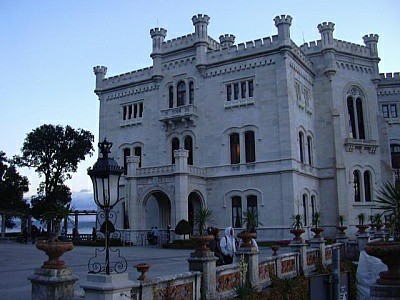[亨利梅因:国际法Lecture14]LECTURE XII. PROPOSALS TO ABATE WAR.To this last lecture of the present course, it seems to me desirable that I should briefly notice some assertions or suggest...+阅读
LECTURE VI. THE DECLARATION OF PARIS.
One point of considerable interest in International Law is the very different degree of durability which the various parts of the system he proved to possess. The oldest rules which belong to its structure are simply rules of religion and morality ordinarily applied between man and man, but so modified by the international writers as to be capable of application between state and state. By the side of these are borne rules which he been inherited from the oldest stratum of the Roman Law, rules of great simplicity, and distinguished at the same time by a great amount of mon sense. These rules still survive and are still ailable for the solution of international questions. On the other hand, there are parts of International Law which are paratively modem, which are highly plex, and which in their day were of great importance, but which he now bee thoroughly obsolete through changes in the social condition of nations or international intercourse. A good example may be pointed out in what was once known as the Rule of the War of 1756. If you look into an international discussion dating from the latter part of the last century, if you look into the reports of the decisions of courts belonging to the same epoch, you will find constant allusions to this rule, which ultimately became the subject of a serious quarrel between England and the United States, a sovereign munity which had not been in existence when the rule was first heard of in England, like probably all the nations of the European continent, adhered to the doctrine that trade with colonies and dependencies was the exclusive privilege of the subjects of the mother country. The question arose whether war made any difference to this monopoly. When the mother country became a belligerent, the route followed by the colonial trade was less obstructed than in ordinary times. The ships which watched the foreigner who in peace tried to intrude upon it, were perhaps driven away by the vessels of the other belligerent; and the route being more open, neutrals constantly tried to engage in trade which in time of peace would he been forbidden to them. What, then, was the consequence of neutral invasions of this privilege? It was argued on behalf of the neutral trader, that there being nobody else to undertake the transport of modities, he was entitled to share in it. This was denied by the English courts of justice, and they decided that a neutral ship, engaged in a trade of this deion, was liable to capture. This was the rule of the war of 1756, which denied to neutral shipowners participation in the trade which was a monopoly of the mother country or the country which was sovereign over the dependency. There was at that time a rule which forbade certain articles to be exported from Ireland; and of course the trade of India, which was in the hands of a pany, was even less open to nonprivileged traders. But this rule, and the state of things which it implied, are now pletely obsolete, and all the dissertations about them which once filled the books are obsolete. It was the United States, then new as a sovereign munity, which first contested most strongly the legality of the rule. But it has been in fact destroyed by the indirect influence of the United States. The fortune of the United States showed that a great increase of national wealth followed independence, and the demonstrable profitableness of open trade sapped the old colonial theories, while, no doubt, the success of the United States in securing their independence showed the danger of attempting to control extensive and distant dependencies. A specially interesting set of questions arises on the four articles of the Declaration of Paris, the great modern system of reformed maritime law which, but for one dissentient, would he bee the law of the whole civilised world. This Declaration, as we he seen, keeps alive two sub-departments of the old law of nations in very much their original state; the law of contraband of war, and the law of blockade. Let us ask ourselves whether these branches of law are likely to be long-lived even as slightly altered by the arrangements of Paris. I he already pointed out that the list of articles of contraband of war was not yet closed. The proposal to include certain things in this class has not in some cases been conclusively rejected, while, on the other hand, as it is very generally allowed that modities may bee contraband through the circumstances of a particular war, perfectly new kinds of contraband may yet make their appearance. Perhaps the articles as to which there has been most dispute he been those which follow the first class and head the second; the first class being munitions of war, and the second class things of what, in International Law, are called 'doubtful use;' timber, sail cloth, hemp in the early stages of manufacture, cordage, pitch and tar. Lord Stowell admits this, and gives the reason, that wars he bee more and more nal, so that articles of most use in regard to ships, and the propulsion of ships, gain more and more likeness to munitions of war. There were endless controversies on the subject. There were repeated differences with the B

altic Powers it whose territories the materials of these things were for the most part produced. Many treaties ge lists of articles of contraband, and to some of these England was a party. The principle which the English Government several times adopted was, that nal stores might be taken possession of, but that, unlike articles of contraband, they must be paid for by the captor. But changes in the structure and mode of propulsion of ships tend to make this kind of contraband or quasi-contraband obsolete. Steam renders sails of little utility, and diminishes their number. The hulls are now more and more made of iron, and iron wire even takes the place of cordage. It is possible that nal stores may disappear from the list of contraband, while there may be a struggle to include such innocent articles as coal and food.
The second exception to the immunity of neutral property is, property carried in a ship attempting, or reasonably suspected of attempting, to enter a blockaded port. Blockades in the last century were considered by belligerents a most elective method of distressing an enemy; and over great part of the European continent the great markets for traders and the fortified stations for ships are most exposed to blockade. To prevent neutral vessels from entering or leing these ports, was to do severe injury to trade; and to impoverish the blockaded port was to impoverish the country round about, and, if ships of war were lying within the port, to diminish seriously the total fighting force of the enemy. Brest and Toulon were practically blockaded all through the great war at the beginning of this century and the end of the last. England was again a belligerent during the Crimean war, and there were some blockades, not perhaps very important, of ports in the Baltic and the Black Sea. But during the American war between the Northern and Southern States she became a neutral, it hing been at last allowed, even by the United States, that there was a state of belligerency between the batants. Even then it became clear that a considerable change had occurred. Steam made the limited ny of the Northern States able to maintain a fairly elective blockade of nearly the whole coast of the Southern Confederate States. Steam also greatly facilitated the operations of the neutral blockade-runners. But the land behind the ports of the Southern States was rich and fertile, and many railways had been constructed in those territories. The effect, therefore, of the blockade was very unlike the eject of the blockades in the great French war. Articles of first necessity were easily supplied to the blockaded ports from within, and the effect of the blockade was to raise the price of luxuries, which were always imported from abroad. If, however, we look on the present state of the world, we shall see that no European continental Power of any importance exists which is not connected by railways with the interior of the country to which it belongs, and also, through connecting links, with the railway system of the whole Continent. A blockade may still raise the price of necessaries and conveniences, but unless aided by a land siege it cannot prevent a sufficient and even plentiful supply of necessaries and conveniences entering a blockaded place. It cannot arrest trade; it can only divert it. A land traffic would at once take the place of a maritime traffic. Hardly any colonial produce reached the blockaded ports during the great war with France. Now it would flow in from a dozen openings in Eastern and North-eastern Europe. It is possible that no part of North America could now be blockaded so as to greatly distress the country behind. There has been an extensive construction of railways through all the states on the east side of the United States, and an immense multiplication of manufactures throughout the country. South America, rapidly growing in wealth but insufficiently supplied with railway munication, would be the only part of the world to which neutrals would resort, and at which blockades would be of any value.
The fact that in any future maritime war it will probably be found that these branches of law he changed their character, not through any alteration of opinion, but through industrial development, may suggest a suspicion that the new maritime law created by the Declaration of Paris, though now hardly more than thirty years old, may yet shortly prove obsolete. The position is this. Neutral trade is relieved from annoyance and interruption, and privateering is abolished as regards most of the world. But the United States decline the new neutral immunities because they will not surrender privateering. Now in any new war an attempt to enforce the parts of law unfourable to neutrals, will probably turn the neutral trading munity into a belligerent, and the power of employing its own and foreign ships as privateers would make the American Union a very formidable belligerent. The question is, whether it is worth while amending the Declaration of Paris, and making it of universal application by accepting the further reforms proposed by the United States; that is, by exempting all private property from capture, and by abolishing privateering.
以下为关联文档:
亨利梅因:国际法Lecture7LECTURE VII. THE MITIGATION OF WAR.The age in which International Law was born was an age of land wars. The wars of succession and of feudal ascendancy had par...

亨利梅因:国际法Lecture3LECTURE III. STATE SOVEREIGNTYI now propose to occupy you with a group of questions arising out of a subject of much interest and magnitude —— the Sovereignt...

亨利梅因:国际法Lecture4LECTURE IV. TERRITORIAL RIGHTS OF SOVEREIGNTY.All the department of International Law with which I was occupied at the close of my last lecture, the acquisition...

亨利梅因:国际法Lecture9LECTURE IX. RULES AS TO PRISONERS AND QUARTER.At the close of my last lecture I spoke of the Geneva Convention of 1864 as the farthest, as well as the most rece...

亨利梅因:国际法Lecture13LECTURE XI. RIGHTS OF CAPTURE BY LAND.In all modern books on this subject there is more or less distinct condemnation of unauthorized pillage by the soldiers o...

亨利梅因:国际法Lecture8LECTURE VIII. THE MODERN LAWS OF WAR.In my last lecture I explained the detestation which newly-invented instruments of war sometimes occasioned in olden days,...

亨利梅因:国际法Lecture11It is suggested by several of the international writers, and it is probable, that armistices first arose from the truce or truces of God which were repeatedly pro...

亨利梅因:国际法Lecture5LECTURE V. NAVAL OR MARITIME BELLIGERENCY.To sum up what I he been saying. I he been discussing certain legal fictions which are signified through legal metaph...

新东方背诵文选80篇:23亨利·福特HenryFord23 Henry Ford Although Henry Ford's name is closely associated with the concept of mass production, he should receive equal credit for introducing labor practic...



